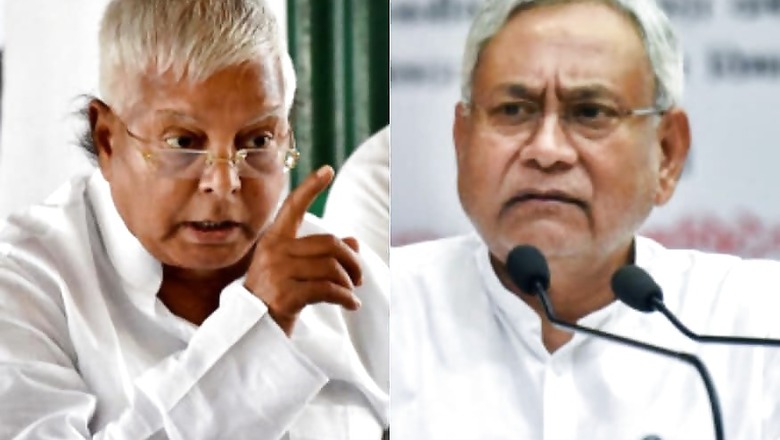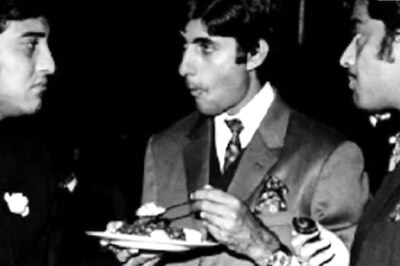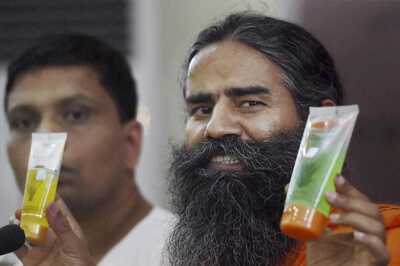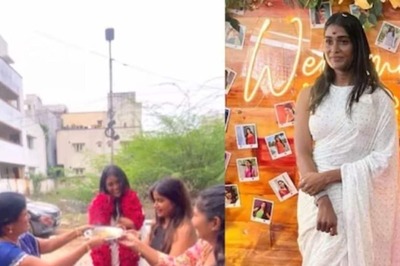
views
Political convulsions have begun in Bihar ahead of the state assembly polls to be held in October-November. Attempts are being made by the different political formations to strengthen their base and weaken the rivals in the game of one-upmanship.
And the stage has been set with the announcement of the legislative council polls for nine seats of the legislative assembly quota. It has provided an opportunity to major political stakeholders for churning out perfect caste calculations for the upcoming assembly elections.
As different political parties were busy setting the caste configurations right in selection of their nominees, the ruling Janata Dal (United) staged a coup of sorts when it engineered a split in the eight-member Rashtriya Janata Dal (RJD) legislature party in the legislative council with five MLCs joining it in a swift political move lately.
The veteran Lalu Prasad, who is incarcerated in Ranchi in connection with fodder scam cases, was caught unawares and the leadership in command including Tejashwi Prasad Yadav was taken by surprise. It is mainly because over 60 party MLAs out of 80 have no access to Tejashwi and many do not attend his meetings due to his alleged ‘arrogance’ towards them. The fire has been fuelled with installation of the ‘disciplined’ Jagadanand Singh as state party chief.
The RJD has received further jolt as former union minister and party vice-president Raghuvansh Prasad Singh quit the post in protest against the likely induction of muscleman-turned-politician Rama Kishore Singh into the fold. As Lok Janshakti Party (LJP) candidate, Rama Singh had defeated Raghuvansh Prasad Singh in the 2014 Lok Sabha polls.
The immediate fallout of this upheaval has proved disastrous for the RJD as former chief minister Rabri Devi lost her post of leader of the opposition in the legislative council. The RJD has been left with only two members besides her. In the ensuing legislative council polls, the RJD can expect to get three more seats by virtue of its present strength in the legislative assembly.
The RJD will eventually have only six MLCs if it manages to win all the three seats in the ensuing legislative council polls to be held on July 6. But it cannot stake claim for the post of leader of opposition as a minimum of eight MLCs are required for it.
The JD(U) has now emerged as the largest party in the present 46-member upper house with 20 MLCs followed by 16 of the BJP, two of the Congress, one each of LJP and Hindustani Awam Morcha (HAM) and two Independents. The configuration will change before the state assembly polls as three more nominees of the ruling JD(U) and two of the BJP are all set to win while Congress can ensure the win of its lone candidate. Besides, the JD(U) and BJP will have seven and five seats respectively out of the 12 governor’s quota seats which fell vacant on May 23.
The selection of candidates for the legislative council polls shows how the NDA allies have set their eyes on delivering a body blow to caste equations of the RJD. The JD(U) has selected three candidates from the steadfast Extremely Backward Castes (EBCs) vote bank while the BJP has set its eyes on garnering support of the Kushwahas (Koeris).
While Ghulam Gaus will recompense the denial of second term to Haroon Rashid, who was officiating chairman of the legislative council until expiry of his term, Kumud Verma will be the woman face of the EBC and Bhishm Sahani is the EBC grassroots worker from West Champaran.
The BJP has tried to woo the numerically preponderant Kushwahas by nominating Samrat Choudhary, a former minister and son of respected Kushwaha leader Shakuni Choudhary, and retaining Sanjay Prakash Mayukh from the Kayastha community.
By selecting Samrat Choudhary, the BJP has tried to cut the chunk of the Kushwaha vote bank constituting nearly six per cent of the total population. It is being considered a masterstroke of the BJP to challenge the claim of former union minister and RLSP leader Upendra Kushwaha as the sole Kushwaha leader.
In the Lalu era of social justice politics, Samrat's father Shakuni Choudhary used to be the towering leader of the Kushwaha community. Of late, he has been away from active politics and supports his son to emerge as the sole Kushwaha leader in Bihar.
The RJD candidates include Sunil Singh, who is Bihar state co-operative marketing union (Biscomaun) chairman and son of veteran cooperative leader Tapeshwar Singh, Mumbai-based businessman Farukh Sheikh and college professor Rambali Chandravanshi from the EBC quota. With Sunil Singh into the party fold, the RJD aims to woo the Rajput caste, which has shifted its loyalty to the NDA since the 2014 Lok Sabha elections.
The Congress played the Muslim card by nominating former union minister Tariq Anwar, who has returned to the party fold after nearly two decades of alienation. The Brahmins and the backward castes though feel neglected with the selection. But the party was forced to hastily change its candidate, replacing Anwar with Samir Singh, after realising that the original nominee was not a voter in the state.
While the RJD stands vanquished by the recent desertions and split, it is planning to give a substantial number of seats to the upper castes especially the Rajputs in the assembly polls. Given the antipathy among Bhumihars for Lalu brand of politics and their unalloyed support to the BJP, the RJD had tried to woo this powerful community by nominating AD Singh in the Rajya Sabha recently.
Outdone by Nitish Kumar’s ‘ruthless operation’ against it, the RJD has once again tried to invoke the ghost of Mandal politics. Tejashwi met Bihar governor Phagu Chauhan, seeking his attention towards the alleged ‘ill-conceived efforts’ of the Nitish Kumar government to abrogate reservation for the OBCs, SCs and STs.
The RJD appears desperate to pursue Mandal politics because different castes of the social justice bloc stand divided due to their individual political ambitions. After implementation of the Mandal commission report, when it came to sharing the political power, there were first among equals. The Yadavs among the Backwards and Paswans among the Dalits enjoyed the fruits of political power.
Many other castes of the social justice bloc were excluded politically. The disenchantment of non-Yadav backward castes and EBCs was lapped up by Nitish Kumar. He took on Lalu Prasad by roping in the support of upper castes, which were unhappy and stood politically isolated after the fall of the Congress.
With a combination of non-Yadav backward castes, EBCs, Dalits and Upper Castes, the NDA definitely enjoys an edge over the RJD-led Mahagathbandhan (Grand Alliance), which is wrangling over chief ministerial candidate and seat-sharing issues.
The NDA is not merely a seat-sharing political coalition but also a social alliance of different caste groups unhappy with Lalu's alleged 'jungle raj' and his family politics. While the BJP brought with it the disenchanted upper castes, the JD(U) added the support of non-Yadav backward castes, EBCs and Backward Muslims.
The caste dynamics have moved a full circle now, as Mandal politics is no more the exclusive right of Lalu alone. “The caste calculus in Bihar has changed. Since the leadership of every political party is in the hands of backward castes after 1993, no one can claim exclusive right on the social justice vote bank,” said BJP leader Prem Kumar.
Bihar chief minister Nitish Kumar’s present term in office, by all accounts, has been tumultuous – severing of ties with the RJD and regrouping with the BJP. The 2020 polls are likely to be the test of his political acumen and trial of his entire efforts in handling the coronavirus pandemic and creation of employment opportunities beyond MGNREGA, as Bihar is strapped for funds and is staring at floods in the coming months.
Aware of the daunting task ahead, Nitish appears to be in no mood to relent.
(The author is a senior journalist. Views expressed are personal.)




















Comments
0 comment